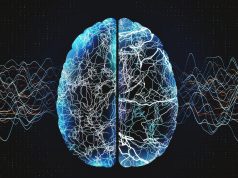Independent factors tied to adenoma detection rate include AI exposure, male versus female patient sex, patient age 60 years or older versus younger than 60
By Elana Gotkine HealthDay Reporter
WEDNESDAY, Aug. 13, 2025 (HealthDay News) — Exposure to artificial intelligence (AI)-assisted colonoscopy is associated with a reduction in the adenoma detection rate (ADR) by endoscopists performing standard non-AI-assisted colonoscopy, according to a study published online Aug. 12 in The Lancet Gastroenterology & Hepatology.
Krzysztof Budzyń, M.D., from the Academy of Silesia in Katowice, Poland, and colleagues conducted a retrospective observational study at four endoscopy centers in Poland, which introduced AI tools for polyp detection at the end of 2021, after which colonoscopies were randomly assigned to be conducted with or without AI assistance according to the examination date. The change in ADR of standard non-AI-assisted colonoscopy before and after AI exposure was examined as the primary outcome.
A total of 1,443 patients underwent standard non-AI-assisted colonoscopy before and after AI introduction (795 and 648, respectively). The researchers observed a significant decrease in the ADR of standard non-AI-assisted colonoscopy from 28.4 percent before to 22.4 percent after exposure to AI. A multivariate analysis revealed that independent factors significantly associated with ADR included exposure to AI, male versus female patient sex, and patient age 60 years or older versus younger than 60 years (odds ratios, 0.69, 1.78, and 3.60, respectively).
“To our knowledge this is the first study to suggest a negative impact of regular AI use on health care professionals’ ability to complete a patient-relevant task in medicine of any kind,” coauthor Marcin Romańczyk, M.D., also from the Academy of Silesia, said in a statement. “Our results are concerning given the adoption of AI in medicine is rapidly spreading.”
Several authors disclosed ties to the medical technology industry.
Editorial (subscription or payment may be required)
Copyright © 2025 HealthDay. All rights reserved.








